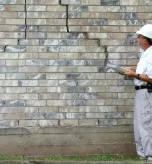Home inspections are an integral part of the real estate process, especially in desirable locations like Orange County, California. Whether you’re buying, selling, or maintaining a property, understanding the home inspection process can help you avoid costly mistakes. This guide explores the unique aspects of home inspections in Orange County, and what homeowners, buyers, and sellers should know to ensure a smooth experience.
Why Home Inspections Are Crucial in Orange County
Orange County is known for its picturesque beaches, luxury homes, and robust housing market. However, like anywhere else, homes in the area are subject to wear and tear from natural and environmental factors. Orange County’s unique climate, which is generally warm and dry but with occasional seasonal rains, presents specific challenges to the longevity of properties.
Home inspections allow buyers and sellers to get a detailed look at the condition of a property. For buyers, this ensures that any hidden issues, from roof damage to plumbing concerns, are identified before closing the deal. For sellers, a pre-inspection can help them address potential problems before listing their homes, potentially increasing their market value.
Key Areas of Focus in Orange County Home Inspections
Roof Condition: With its hot summers, roof materials in Orange County homes can degrade faster than in milder climates. Inspectors will carefully check for cracked or missing tiles, leaks, and damage caused by UV exposure. Given that many homes are equipped with clay or tile roofs, which can be quite durable but prone to specific issues, roof health is a major focus during inspections.
Foundation and Structural Issues: Earthquakes are a concern for all Southern California residents, and Orange County is no exception. Inspectors will look for any signs of foundation cracking, structural instability, or other damage caused by seismic activity. Homes located in hillside areas may also be more vulnerable to shifting and settling.
Plumbing and Electrical Systems: Older homes in Orange County, especially those built before the 1980s, may have outdated plumbing and electrical systems. Inspectors look for issues like galvanized pipes, which can corrode over time, or outdated electrical panels that may pose a fire hazard. Identifying these problems early can save homeowners from potentially expensive repairs.
Water Damage and Mold: While Orange County isn’t known for heavy rainfall, the region’s occasional storms can lead to water damage if homes aren’t adequately protected. Inspectors check for signs of leaks, particularly in basements, crawl spaces, or attics. They’ll also look for mold, which can grow in damp areas and pose health risks.
Pest Infestations: Termites are a common issue in Southern California. Orange County home inspectors are trained to look for signs of termite damage, including hollow-sounding wood, mud tubes, and discarded wings. Pest control companies are often called in to verify and treat infestations.
Energy Efficiency: Many Orange County homeowners are interested in energy-efficient upgrades to reduce utility costs and minimize their environmental impact. Inspectors may check insulation, window seals, and HVAC systems to determine the energy efficiency of a home. Solar panel systems, common in newer constructions, are also reviewed to ensure they are in good working condition.
The Cost of a Home Inspection in Orange County
The cost of a home inspection Orange County varies depending on the size and age of the property, but typically ranges between $300 and $800. Larger homes, luxury properties, and those with additional features like pools or guest houses may require specialized inspections, which can drive up the cost. However, given the high property values in the region, the price of an inspection is a small investment that can prevent costly surprises down the road.
Choosing a Home Inspector in Orange County
Selecting a qualified, experienced home inspector is critical. In Orange County, inspectors should be familiar with the specific challenges that homes in the area face, such as earthquake preparedness and roof longevity. It’s also important to choose an inspector who is certified by a recognized organization, such as the American Society of Home Inspectors (ASHI) or the International Association of Certified Home Inspectors (InterNACHI).
The Future of Home Inspections in Orange County
As Orange County continues to grow and evolve, the home inspection industry will likely see changes, particularly as the demand for sustainable and energy-efficient homes rises. With stricter building codes and an increased focus on environmental sustainability, newer homes are expected to include more advanced technologies that inspectors will need to be familiar with. Additionally, the increasing frequency of extreme weather events may also shift the focus of home inspections in the future.
Conclusion
A home inspection is a vital step in ensuring that a property is safe, functional, and in good condition. Whether you’re buying, selling, or maintaining a home in Orange County, investing in a comprehensive inspection can save time, money, and headaches in the long run. With the region’s unique climate, geological considerations, and high-value real estate market, partnering with a knowledgeable and experienced inspector is crucial to protecting your investment.





